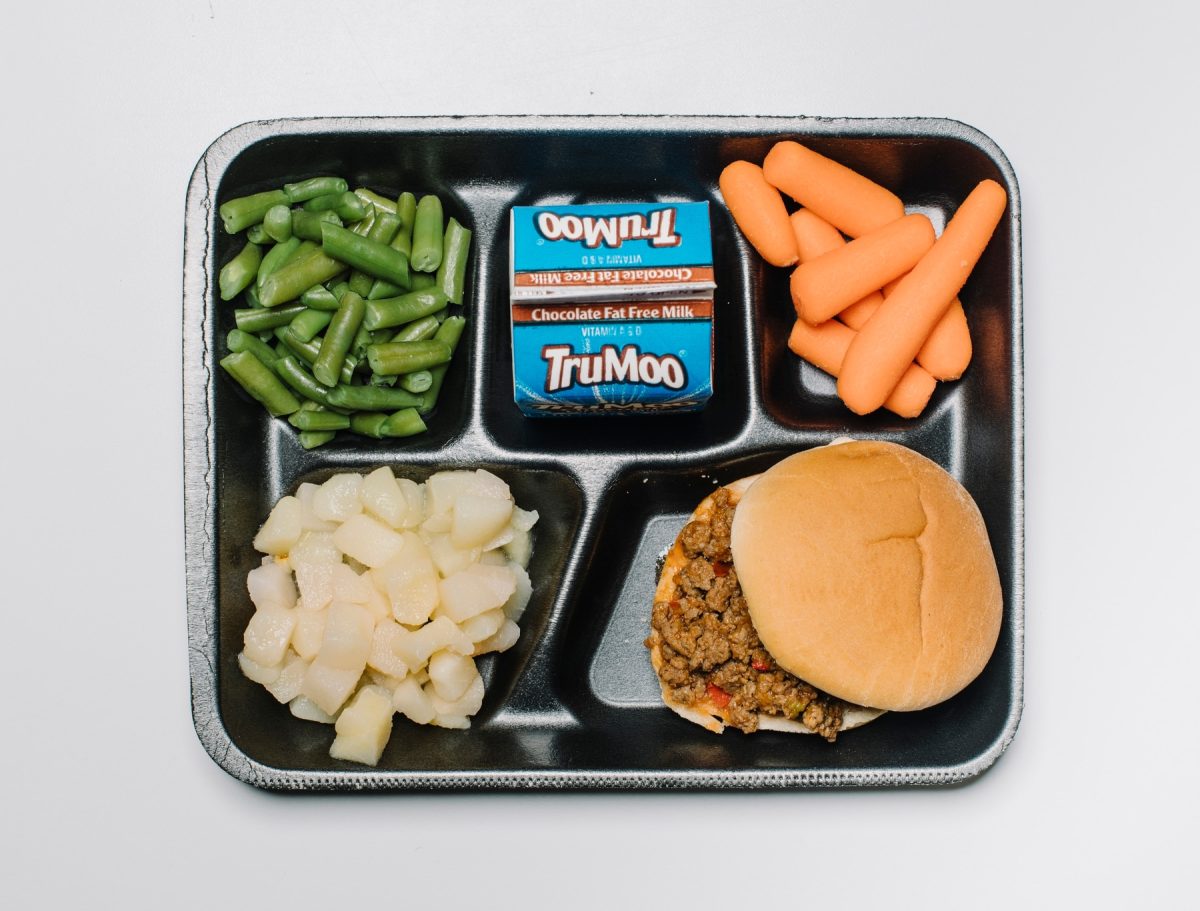
Every year, Seniors are seen scrambling and stressing over college applications. This process may seem overwhelming and confusing—with various essays to write, forms to complete, and decisions to make— applicants will naturally feel lost. However, the good news is that you´re not alone. This article focuses on helping future applicants navigate college applications by turning to those who have already undergone the process. From crafting distinct essays and managing time and stress to staying organized, current college students and seniors from Santiago High School are here to offer tips for tackling college applications successfully, creating a less daunting experience.
Advice from Current College Students
Kendall Hutch, a previous student at Santiago High School who is now attending UC Berkeley, applied to in-state schools, with Berkeley as her dream school. She recommends applying to several schools, as she also applied to UCLA, UCSB, UCSD, UCI, CSULB, SDSU, and Cal Poly SLO, getting into all but UCLA. She began by explaining the most challenging part of her college application process, which was ¨getting over the fear of them.¨ She provides a means of relatability as she describes applications as ¨very daunting¨, relentlessly reviewing and revising essays, extracurricular sections, and information to attempt to create a perfect application. She recalls how stressful this process was. Hutch details, ¨To me, I just kept thinking, ´Wow, this is your future, Kendall, it must be perfect.´ To overcome this, I just had to tackle it and start writing, removing any negative thoughts from my mind. Luckily, I also had people helping me make edits just so I could put my best work out there.¨ Kendall then transitions into offering advice that helped her throughout the application process, specifically touching on time management: ¨Manage your time well because before you know it, applications will be due and you’ll have barely made a dent in. Also, ensure you are still staying on top of your work; school doesn´t stop because of applications.¨ She proceeds to advise dedicating a day in the weekend or full weekends to working, whether it´s applications or applications and homework, ¨I always ensured that I had been doing something for my college applications every weekend.¨ Going forward, she touches on the personal essay portion of the application, which is one of the most important sections, ¨I think having a compelling story is important for a personal statement, and it doesn´t have to be some tragic sob story that everyone talks about but something that truly changed you as a person.¨ Additionally, she believes that her extracurriculars are really what solidified her acceptance into Berkeley, ¨Extracurricular activities and volunteer work was a huge aspect of my application. I don´t think I would have been accepted into as many colleges if I hadn´t had so many activities or volunteer work in my applications. Grades do matter, but being a well-rounded student is what matters most. Get good grades, yes, but also participate in clubs and activities. Grades can get you far, but grades and outside activities can get you farther.¨” Kendall closes off her advice by adding that a healthy balance between working and enjoying life is a must within this process; she recommends ¨getting together with friends and working on applications.¨
Another college student, Nandana Menon, from the University of Iowa, who was also accepted into Brown University, adds to Kendall´s advice by touching on some information she wishes she had known before starting her college applications: ¨There are a lot of things I wish I had known before starting my college application process. So many colleges often offer different scholarships if you have completed certain summer visits to the school. For example, I had no idea that as a junior or senior in high school, I could come to the University of Iowa and shadow at the hospital paid for by the school. A lot of the schools don’t do a great job of advocating what internships or special programs they have (mainly because of availability), and being the oldest, first-gen student, it was frustrating missing all of these opportunities when I had no guidance,¨ she emphasizes. She proceeds, ¨Another thing I wished I had done was not to let too many people read my essay. By the time my paper got back to me, it had stripped my writing style away and made it more of an interview read. If you have a solid essay representing your student type, you will get into the college best tailored to your needs. ¨ Finally, she shares her last concern, ¨Last thing I would say I wish I knew before the application process was that it is okay to apply with many majors across various colleges (obviously majors that would cater to the academic field you’re trying to pursue) and change majors if needed after attending.¨ Nandana applied not only in-state through the UC application but also through the common application for out-of-state schools.
Finally, Natasha Dhamsania, a student at Cal Poly Pomona, shares that the most challenging part of the process was the personal insight questions, as it ¨was difficult for me to narrow down a topic and theme for a couple of my essays. It was also challenging to fit everything I wanted to say in 350 words.¨ This advice is catered to the UC application, as there are four supplements with 350 words maximum. Focusing on these personal insight questions is vital for a successful application. She detailed the strategies she used to write a compelling personal statement, such as ¨ discussing relevant skills, showing my passion and drive, going in depth about what I could achieve, and more.¨ Similar to the advice from Kendall, she also recommends starting early, editing essays, and organizing your list of extracurriculars, awards, honors, volunteer work, internships, and more. She mentions to ¨ínclude them in your essays¨ as well.¨ Some sources she found useful were the UC and CSU websites, but one thing she wished she knew was how ¨college applications are about impacted majors and about how some colleges admit students based on their major.¨
These college students provided necessary and credible advice from their own experiences, focusing on essays, extracurriculars, time management, and missed opportunities, but now, let’s hear from current seniors at Santiago High School who have just recently undergone the process.
Advice from Current Seniors
Aarush Kochar, a Senior at Santiago High School, recalls his experience in navigating the different applications, financial aid, planning letters of recommendation for different schools, and deciding how to portray yourself on your applications best, ¨My biggest advice would be to make a list of schools you want to apply to early on so you know how many essays and letters you will need. Also, start planning your essays over the summer.¨ Further touching on the topic of essays, Aarush suggests working ¨to tell a story with a coherent theme rather than trying to fit in a bunch of different things about you.¨ You have a limited word count; it is important to understand that colleges want to see the most critical parts about you in these essays. Moving on, when asked about time management, Aarush explains that he set weekly goals to work on his essays and activity lists. He also mentions that ¨staying ahead of your work is helpful to account for busy weeks when you can´t make any progress on your applications.¨ Furthermore, Aarush utilized assist.org to help him learn how his colleges and AP credits would be transferred to different schools. Aarush applied through the UC and Common app applications for Early Action.
Meghna Menon, another student at Santiago High School, goes into depth about her experience, offering relatability by explaining that the “most challenging part of college apps was learning to accept the work I submitted and seeing myself on paper. I overcame it by understanding that everybody is going through the same thing of having to put themselves on paper and acknowledging that I displayed the best version of myself. Hence, everything else is out of my hands.” Connecting to Aarush´s advice on writing the essay and connecting it to a larger theme, Meghna states, ¨I jotted down anything that came to my mind, not focusing on creating a storyline but more just seeing how my brain naturally interpreted the prompt. With my random thoughts, I found some way to connect it as a storyline or to something else, like a leadership skill or something broader to establish a narrative.¨
If you are busy with a sport, Meghna may offer some good advice for those who feel they may struggle to balance their time between school, sports, extracurriculars, and applications, ¨I mostly worked on my apps on the weekends because I didn´t save myself much time to do them during the school week. Some weekends, I took to myself, which resulted in finishing my apps close to the deadline, but I made sure to fish my personal questions first since those deserved the most care and time.¨ Applications require great attention and commitment, which is why these students highlight time management in order to focus on the little details that greatly impact one’s application.
Furthermore, Travis Nguyen, a senior at Santiago, covers how he overcame starting his application late, explaining that he had to dedicate his Thanksgiving break to many hours of working on college applications. However, with great commitment, he managed to finish on time and reach out to others to revise his essays for ¨grammar, syntax, and flow¨. He recommends writing in the active voice rather than the passive voice. He explains, ¨Be straightforward, answer the prompt, connect the essay to an extracurricular, and have a format.¨
Vishnu Sharma adds to these pieces of advice, saying that when writing essays, one should ¨always think of yourself¨, although he points out how this may sound odd, he explains that ¨colleges want to hear your story and what makes you the person you are.¨ He then touches on the importance of extracurricular activities showing who you are besides academics.
Ghazyan Khan and Nyle Raouf, along with the other respondents, advise future applicants to research schools with well-established programs or majors that align with their intended major, ruling out which schools they decided to apply to. Some resources many students use to their advantage are ChatGPT (responsibly), TikTok/Instagram college advisors, and websites to aid students in applying.
Key Takeaways
Overall, the college application process is undoubtedly stressful, but as we´ve heard from both college students and high school seniors, it can most certainly be tackled by managing one´s time effectively and showcasing your uniqueness through your essays. 76% of students report high levels of stress due to college applications, so you are not alone. These students offered valuable advice that simplify what may seem like an overwhelming task for future applicants. With determination, good time management, starting early, staying organized, and reaching out to others, the application process can transform from a stressful experience to a rewarding one that sets the stage for your future. So, stay calm as you move forward, follow the guidance of those who have been in the same position, embrace the opportunity to discover yourself, and allow colleges to discover who you are throughout the process. Your hard work will pay off in the end.









